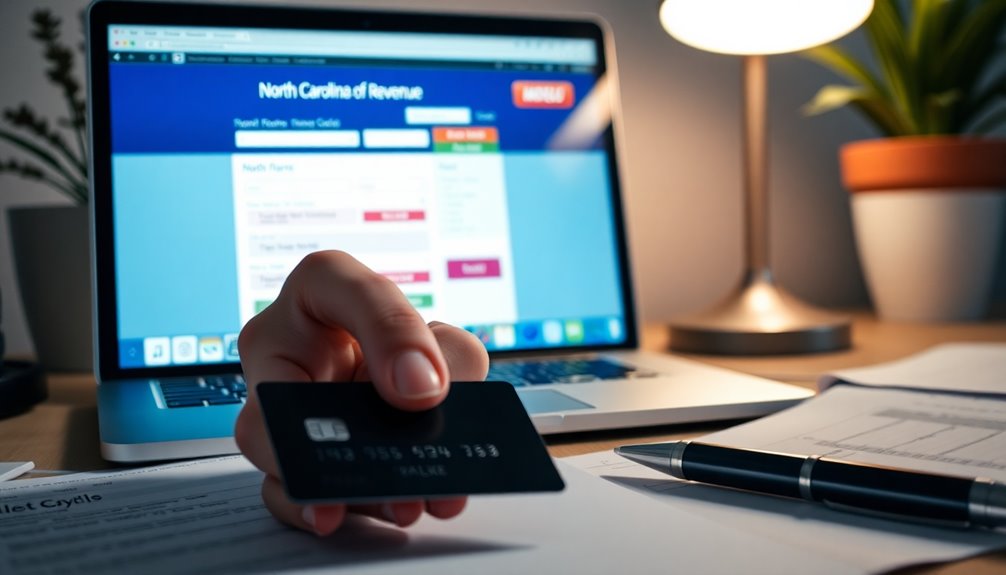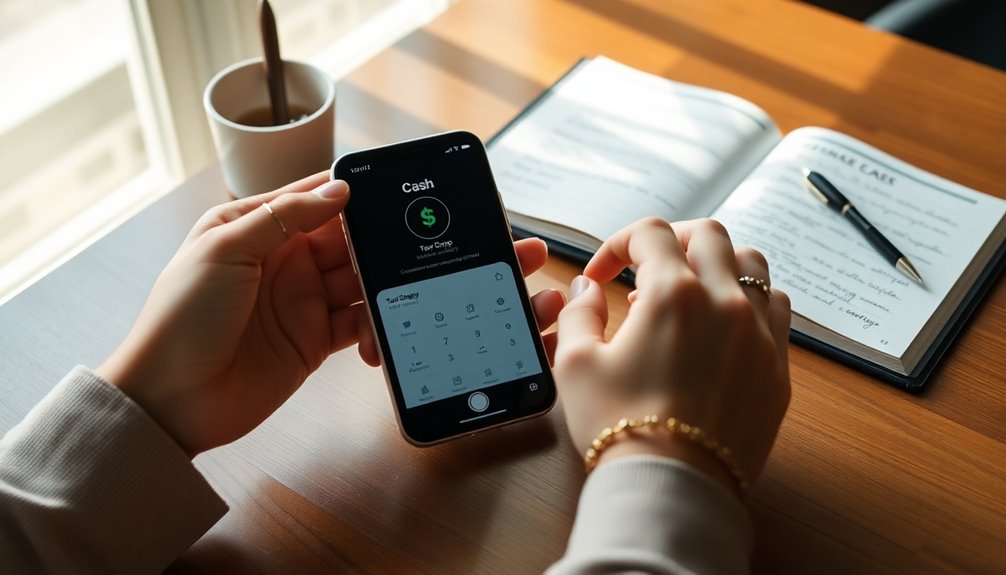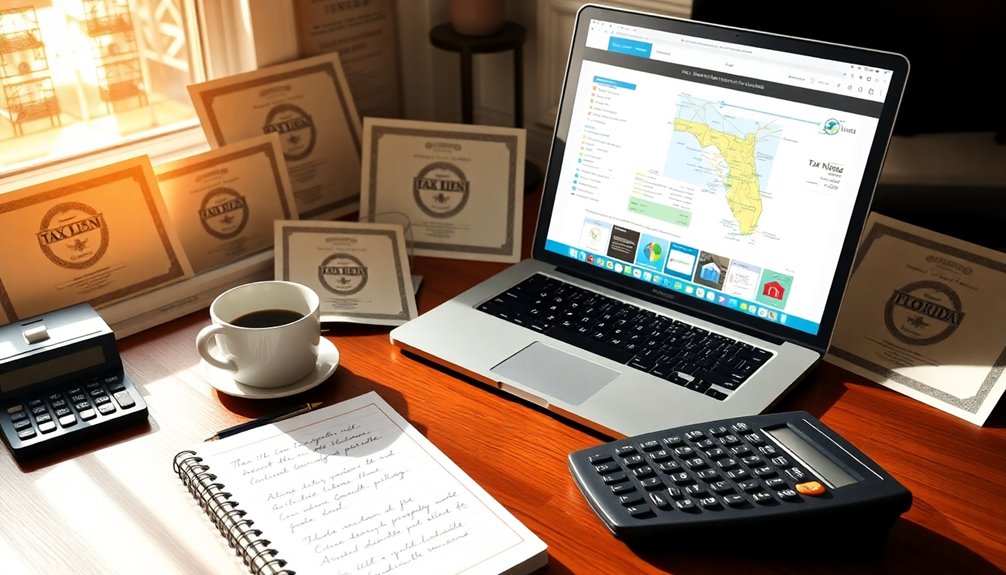Paying your North Carolina state taxes is easy. You can do it online at the NC Department of Revenue website. Just select "File & Pay" and choose your tax type. Payment can be made via bank draft for free or credit/debit card, though a fee applies. If you prefer to mail your payment, send a check or money order to the specified address on Form D-400V, including your tax year and Social Security Number. Remember, payments must be postmarked by the deadline to avoid penalties. Stick around, and you'll discover even more helpful tips for your tax payments!
Key Takeaways
- Visit the NC Department of Revenue website at www.ncdor.gov to file and pay your taxes online.
- Choose between payment methods: bank draft (no fee) or credit/debit card (with a $2 fee per $100).
- For mail payments, send a check or money order to the address on Form D-400V, postmarked by the due date.
- Complete Form D-410 for extension payments by the 15th day of the 4th month after the tax year ends.
- Make estimated tax payments quarterly, with due dates on April 15, June 15, September 15, and January 15.
Online Payment Options
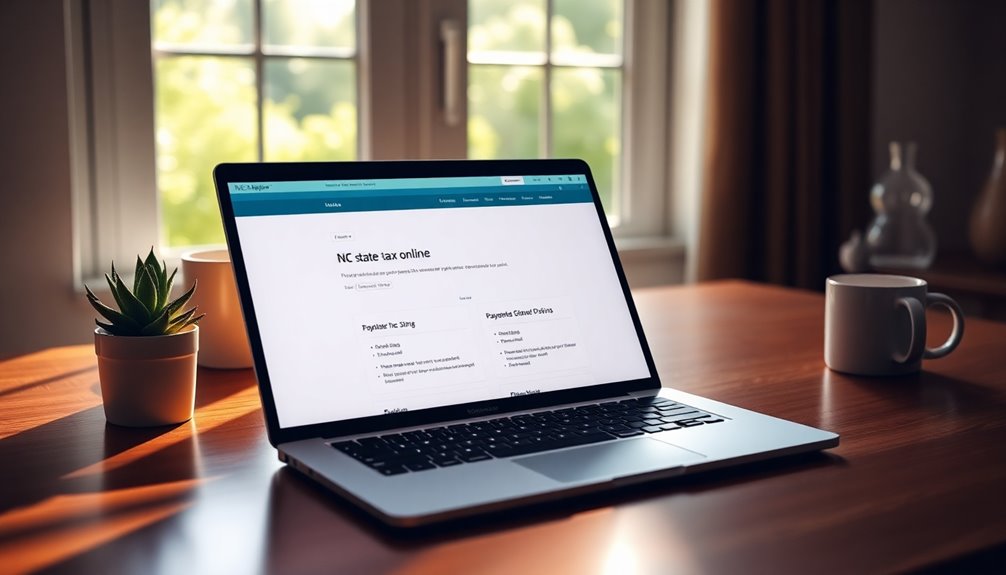
Paying your NC state taxes online is a convenient option that simplifies the process. To get started, visit the NC Department of Revenue website at www.ncdor.gov. Click on the "File & Pay" option in the blue banner, then scroll down to the "Commonly Filed Taxes" section to select the type of tax payment you need, like Individual Income Tax D-400V.
You'll need to enter the tax year and your filing status, along with the primary taxpayer's full name, social security number, and address. You can choose to pay via bank draft, which is free of charge, or by credit/debit card, but be aware there's a convenience fee of $2.00 for every $100 increment. Additionally, remember that individual income tax returns are due by April 15 annually to avoid penalties.
You can also schedule the draft date, but make sure it's before the due date to avoid penalties. After you've entered all the required information, review it and confirm before submitting your payment.
Once submitted, you'll receive a confirmation number on the screen, and an email confirmation will follow within two business days. Don't forget to keep that confirmation number for your records!
Mail Payment Methods
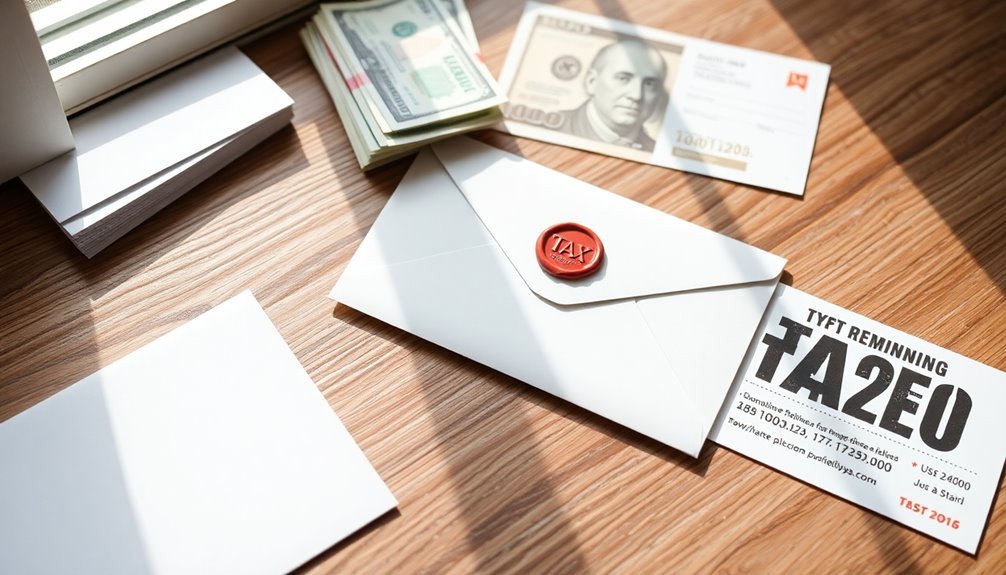
When it comes to mailing your NC state tax payments, follow the specific guidelines to ensure everything goes smoothly.
Start by sending your payment to the appropriate address for the NC Department of Revenue, which you can find on the Form D-400V voucher for income taxes. It's crucial to include the tax year, your daytime phone number, and your Social Security Number on your payment.
You can make your payment using a check or money order, both payable to "NC Department of Revenue". Additionally, consider utilizing Martin County GIS Online Resources to access property information that may be relevant for your tax payments.
Don't forget to attach the relevant tax form, such as Form D-400, and make sure your payment corresponds to the correct tax period. Always keep a record of your mailed payment, noting the date and amount.
To avoid penalties, make sure your payment is postmarked by the due date. If you're dealing with property taxes, remember that payment without interest must be made by January 5.
Using a traceable mail method can help you verify receipt. By following these steps, you can ensure your payment process is efficient and hassle-free.
Understanding Extension Payments
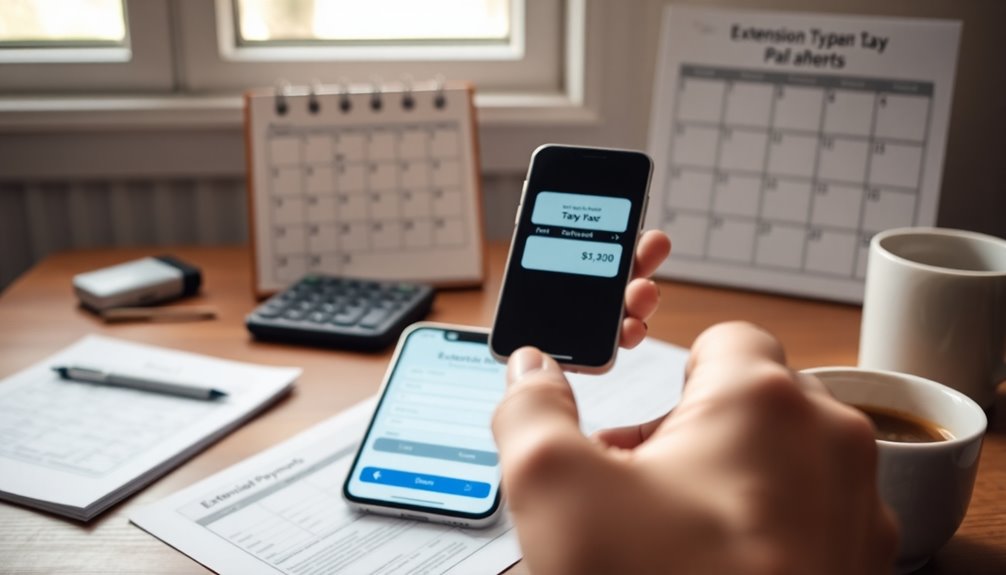
Understanding extension payments is essential for managing your NC state tax obligations effectively. If you're filing for an extension, you'll need to submit Form D-410 by the 15th day of the 4th month after your taxable year ends, which is May 17 for calendar year filers.
Remember, an extension to file doesn't mean you get extra time to pay your taxes. The payment is still due by the original deadline. Additionally, it's important to note that extensions do not extend the time to pay taxes due.
If you don't pay your taxes on time, you'll face interest and penalties. Interest accrues from the original due date until you pay, and penalties kick in for any unpaid tax. To avoid these extra costs, it's crucial to pay your estimated tax by the original deadline, even if you're filing an extension.
You can easily make payments online through NC E-Services, set up automatic drafts, or use a credit or debit card, although a service fee may apply.
Filing Form D-410 electronically is encouraged for instant approval and convenience. By staying on top of your extension payments, you'll keep your tax obligations manageable and avoid unnecessary fees.
Estimated Tax Payment Process

Navigating the estimated tax payment process can seem daunting, but breaking it down into manageable steps makes it much easier. First, estimate your taxable income for the year, considering all revenue sources like sales and services.
Next, calculate your expected expenses, including operating costs and deductions. Use North Carolina's tax rate schedule to apply the appropriate tax rate to your estimated taxable income, deducting any relevant credits to find your estimated annual tax liability. Additionally, remember that quarterly business taxes are mandatory payments made every three months to ensure compliance with state regulations.
To calculate your quarterly payments, divide that annual liability by four. Double-check your calculations to avoid any penalties. Form NC-40 can assist you in determining the payment amount for each quarter, so keep accurate records of your calculations and any adjustments made throughout the year.
Mark your calendar for payment due dates: April 15, June 15, September 15, and January 15 of the following year.
Lastly, choose a payment method that works for you. You can pay online for convenience or opt to mail in your payment. Whichever method you choose, ensure it complies with state guidelines to prevent any issues.
Corporate Tax Payment Guidelines

Corporate tax payment guidelines are vital for ensuring compliance and avoiding penalties. You need to file your corporate income tax returns (Form CD-405) by the 15th day of the fourth month after your fiscal year ends. If you follow the calendar year, that means your deadline is April 15.
If you file for a federal extension, North Carolina grants you an automatic 6-month extension, pushing your filing deadline to October 15. However, remember that your payment is still due by April 15.
You can submit your returns through authorized software providers or mail them to the North Carolina Department of Revenue at PO Box 25000, Raleigh, NC 27640-0500. If you choose to mail, ensure your submission is postmarked by the due date. Payments and returns must be filed together.
Additionally, if your business qualifies for franchise tax, you'll pay $1.50 per $1,000 of net worth for C corporations. S corporations pay $200 for the first million and $1.50 for amounts over that. Franchise tax obligations apply to C corporations, S corporations, and LLCs.
All franchise tax payments follow the same deadlines as corporate income tax. Starting in 2025, the filing due date will be extended to one month later than the federal deadline.
Frequently Asked Questions
What Happens if I Miss the Tax Payment Deadline?
If you miss the tax payment deadline, you'll face penalties and interest. A 10% penalty on the amount due kicks in immediately, and interest starts accruing from the original due date.
If you're negligent or willfully late, expect increased penalties. Filing late returns adds even more to your burden, with additional penalties of 5% per month.
It's crucial to address any missed payments promptly to mitigate further consequences.
Can I Set up a Payment Plan for My Taxes?
Yes, you can set up a payment plan for your taxes.
You'll need to apply through the North Carolina Tax Online Services and submit Form D-410 if you're dealing with an extension.
The North Carolina Department of Revenue has to approve your plan, so be ready to establish a payment schedule that meets their criteria.
Consider setting up automatic bank drafts to ensure you never miss a payment.
Is There a Penalty for Underpayment of Taxes?
Yes, there's a penalty for underpayment of taxes. If you owe $1,000 or more, you could face penalties unless you pay at least 90% of your current year's tax or 100% of the previous year's tax.
For high earners with an AGI over $150,000, it's 110% of the previous year's tax.
You can minimize penalties by making timely estimated payments and ensuring correct withholding throughout the year.
How Can I Check My Tax Payment Status?
To check your tax payment status, visit the North Carolina Department of Revenue website.
Navigate to the section labeled "Check your refund status" or "Where's My Refund."
You'll need to enter your Social Security number and the exact amount of your expected refund.
Make sure all details are accurate to get the correct information.
Alternatively, you can call their toll-free refund inquiry line for assistance anytime.
Are There Any Tax Credits Available for North Carolina Residents?
Yes, there are several tax credits available for North Carolina residents.
You can benefit from credits for home buyers, veterans, historic structure rehabilitation, and renewable energy investments.
If you're a senior or veteran, property tax relief programs like the Homestead Property Exclusion can help reduce your tax burden.
Make sure to check eligibility criteria and application deadlines to maximize your savings and keep more money in your pocket each year.
Conclusion
Paying your NC state taxes doesn't have to be a hassle. Whether you choose to pay online, by mail, or through estimated payments, staying informed about your options makes the process easier. If you're a corporate taxpayer, make sure you follow the specific guidelines to avoid penalties. Remember, keeping track of deadlines and payment methods will help you stay compliant and stress-free. So, take a deep breath and tackle those taxes with confidence!
